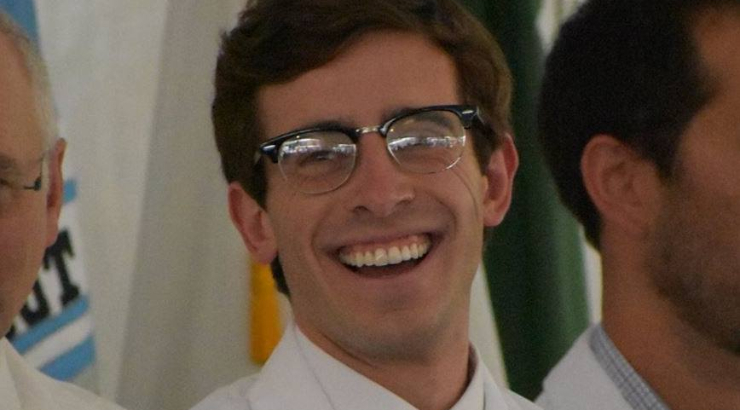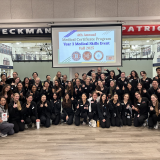
Alumni Spotlight: DJ Smithers ’14 Health Science alumn shares his first-year experience at the Boston University School of Medicine
June 5, 2018
CHBS: What have you been up to since graduating from Chapman?
DS: I took a few years off from school to work at a hospital in my hometown and work on research in public health and health policy. I just finished my first year of medical school at Boston University School of Medicine and I’m now spending the summer doing research in addiction medicine and finishing writing another paper I’ve been working on. Over the last few years I’ve also been working in health policy advocacy to extend access to healthcare to the millions of uninsured and underinsured individuals in the US.
CHBS: How did you get involved in the publication, Military Personnel Who Seek Health and Mental Health Services Outside the Military?
DS: I took a course in medical sociology at Chapman in my junior year and was fascinated by the approach the field takes to critically examining medicine, public health, and health policy. I especially enjoyed the readings we had been assigned by Dr. Howard Waitzkin, MD, PhD, a primary care physician and medical sociologist. It just so happened that Dr. Roberta Lessor, PhD, my mentor and the professor that used to teach medical sociology at Chapman, knows Dr. Waitzkin personally and introduced me. Dr. Waitzkin and I have been working together for a few years now. He’s the principal investigator of the research team I was on that published this paper.
CHBS: How do you feel your education at Chapman prepared you for what you are doing now?
DS: The academic rigor of the science courses I took at Chapman pushed me beyond what I had once thought I was capable of academically and helped me develop study tools and habits that have proved indispensable in studying for the MCAT and starting medical school. And the material covered in the social sciences courses I took, and the professors that taught them, have helped me develop a more nuanced view of the practice of medicine, for its application is inextricably woven up in the social contexts of the world around us.
CHBS: What are your career goals?
DS: I’m planning to become an academic physician and split my time between clinical practice, teaching other future doctors and healthcare professionals, and conducting research. Clinically, I’m interested in primary care, addiction medicine, and critical care and pulmonology. In research, I’m interested in health disparities, especially as they relate to inequities in accessing and utilizing health services in the US. I’m also going to continue working in health policy advocacy as there is much room for improvement in the structuring of our healthcare system.
CHBS: Any words of advice to current Health Science students?
DS: Get to know your professors really well. Go to their office hours and talk to them not just about the difficulties you might be having in courses, but also about all the things that you’re finding interesting and want to read, discuss, and learn more about. The conversations I had with Dr. Lessor about the readings I was enjoying set me on a research path I hadn’t previously thought of, and now can’t imagine not being engaged with. Speak with them about your professional goals, too. Dr. Kenneth Sumida, PhD, and Dr. Frank Frisch, PhD, were the first two professors I ever talked to about possibly pursuing medicine and their advice and support was invaluable. Lastly, take advantage of the interdisciplinary course curriculum for Health Science students. You might just find new interests that alter your professional and intellectual trajectory, as I did with medical sociology.

